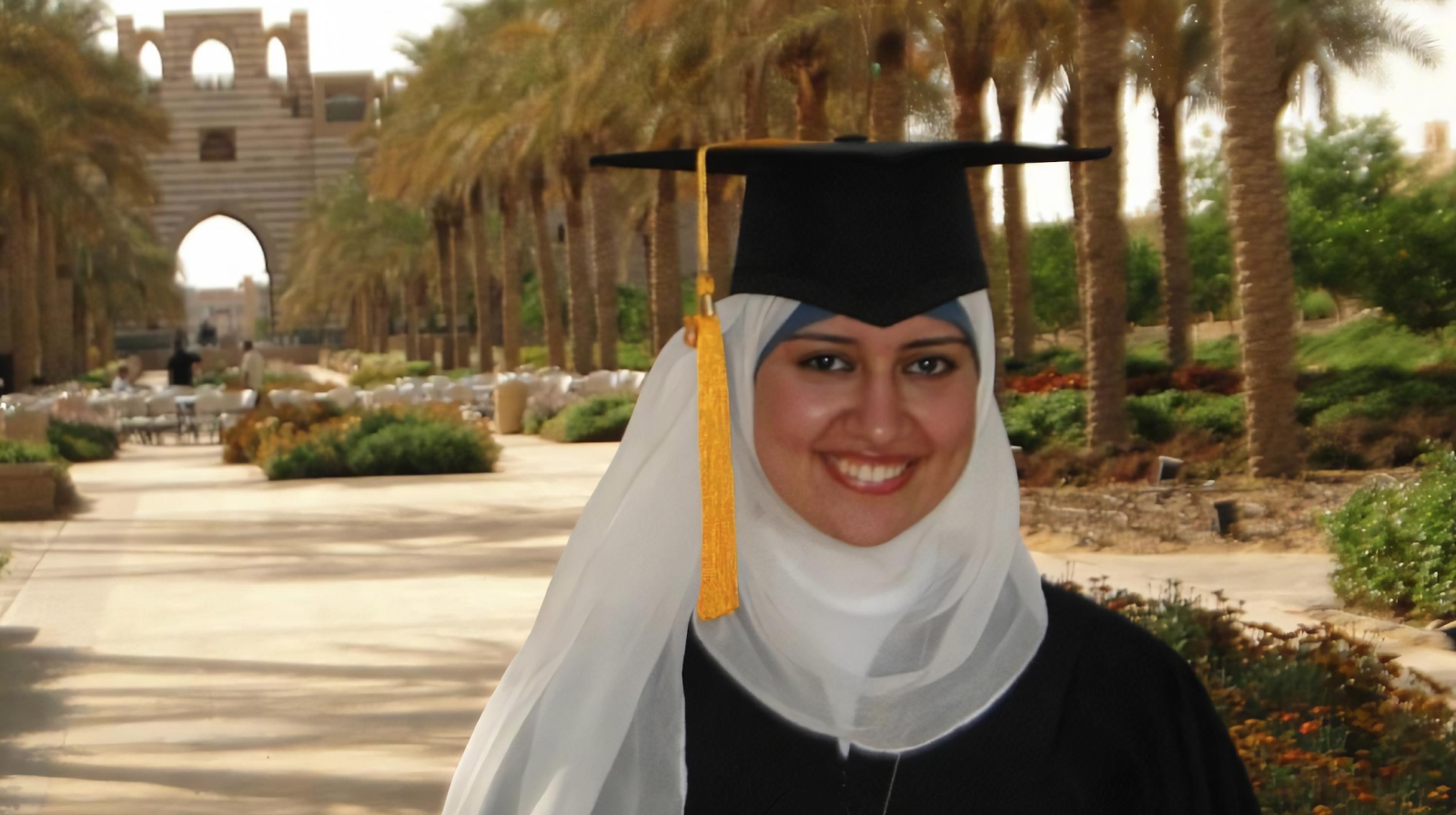The name of Dr. Elham Fadaly has recently become popular in the scientific society, as a research paper she co-authored was published in the renowned Nature magazine. It has even become more popular when the research won the Physics World magazine 2020 Breakthrough of the Year award. The achievement concludes five-decade scientific attempts to create a silicon-based material that could efficiently emit light.
Elham Fadaly was born in Beni Suef governorate to an upper-Egyptian family that honors religion and science. Since childhood, Elham was a keen student who was among the governorate's top students at the preparatory and secondary educational levels. Fadaly did not only focus on academic achievement; she also took part in social, cultural, and sports activities. She participated in cultural events such as poetry recital competitions, and volunteered in different associations and organizations. She also played athletics and won several medals on the national level. All this qualified her to study at the American University in Cairo (AUC) under the Leadership for Education and Development (LEAD) program.

Along her scientific path from the bachelor's degree to the doctorate degree, Fadaly crossed several milestones in different places and specialities. The first milestone was at the AUC where she studied electronic engineering. In her third year, she traveled to the USA, as part of a student exchange program, to study a semester at Drexel University. This was a life-changing experience, as she gained interest in the physics of electronics and nano-physics. It is the milestone at which she knew what her post-graduate studies would be about.
In 2013, she obtained her bachelor's degree and started the journey of her post-graduate studies in Europe. She studied for her master's degree in nanotechnology in Belgium and Sweden, specializing in microelectronics. In 2015, she made it to the Netherlands to join the Delft University of Technology quantum computer project as a researcher. In February 2017, Fadaly's PhD journey started at Eindhoven University of Technology in the Netherlands. She worked on developing nanomaterial for electro-optical circuits and quantum computing. She obtained the PhD on 16 April 2021.
The research of Fadaly and her team qualified for the Breakthrough of the Year award as it will revolutionize physics, thanks to its promising future applications. The problem the research approaches is the enormous amount of data in today's technologically advanced world, and how to transfer this data speedily at a low cost. Nothing compares to the speed of light. Yet, the material used for photonics data transfer, such as gallium arsenide and indium phosphide, are rare and costly, unlike the abundant silicon.
The team researched how to let silicon—a substance with weak photonic properties—emit light efficiently. The idea was to change the natural silicon and germanium structure from cubic to hexagonal to acquire the desired photonic properties. Other possible applications include laser radars, self-driving cars, and bio-sensors. In addition to the Physics World award, Fadaly has received the 2020 Nanotechnology Young Researcher runner-up award.
Though busy with her research and studies, Fadaly still performs her social role. She volunteers at the Egyptian Scholars Foundation, and previously volunteered at the Alashanak Ya Balady Foundation for Sustainable Development. Also, she was elected as a representative of African youth at the Tunza Youth Advisory Council (TYAC), affiliated to the United Nations Environmental Program (UNEP). Fadaly is interested in science communication; she participated in the FameLab competition at the University of Eindhoven in 2020. She also joined the editorial team of the Maqal Elmy initiative.
In conclusion, Dr. Elham Fadaly's success was definitely not instant; it crowns a long journey of hard work.
References
gate.ahram.org.eg
maqalelmy.org
aucegypt.edu
innovationorigins.com
Image 1: © innovationorigins 2020
Image 2: aucegypt.edu